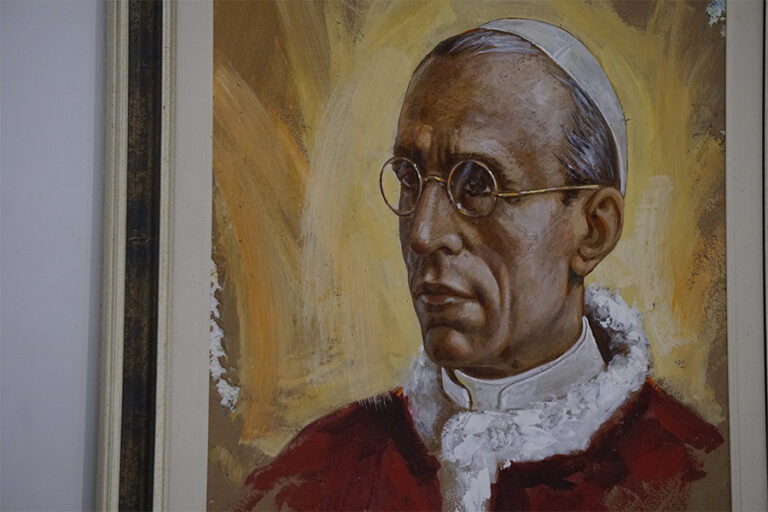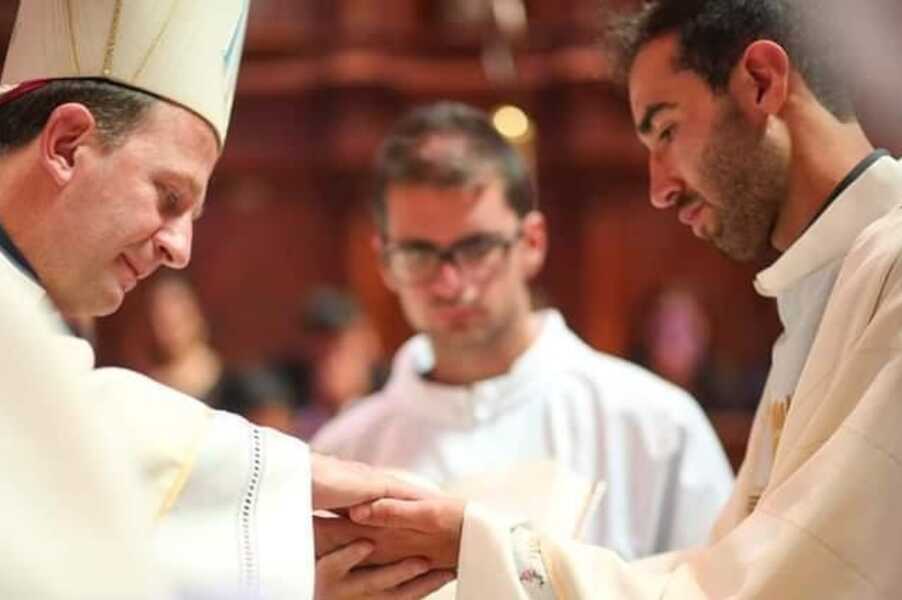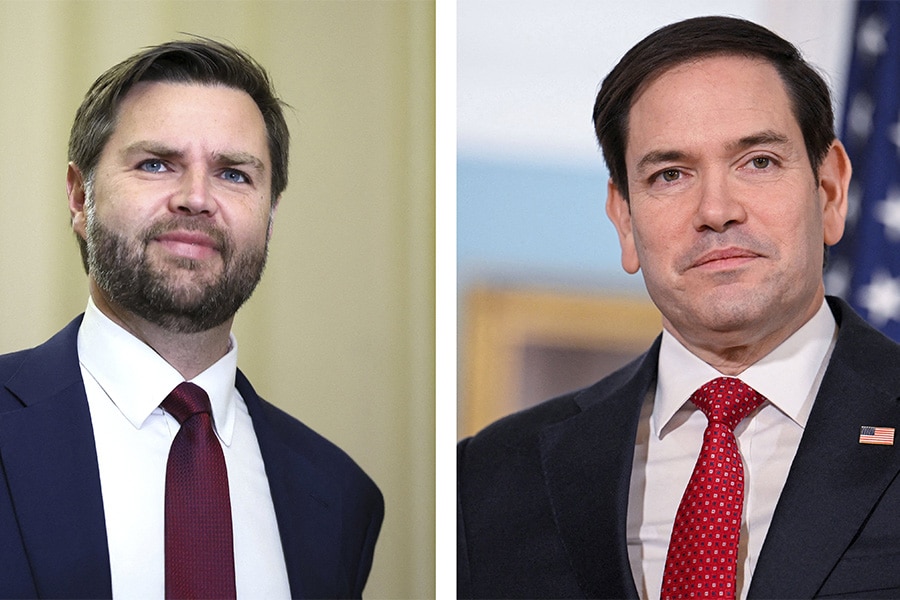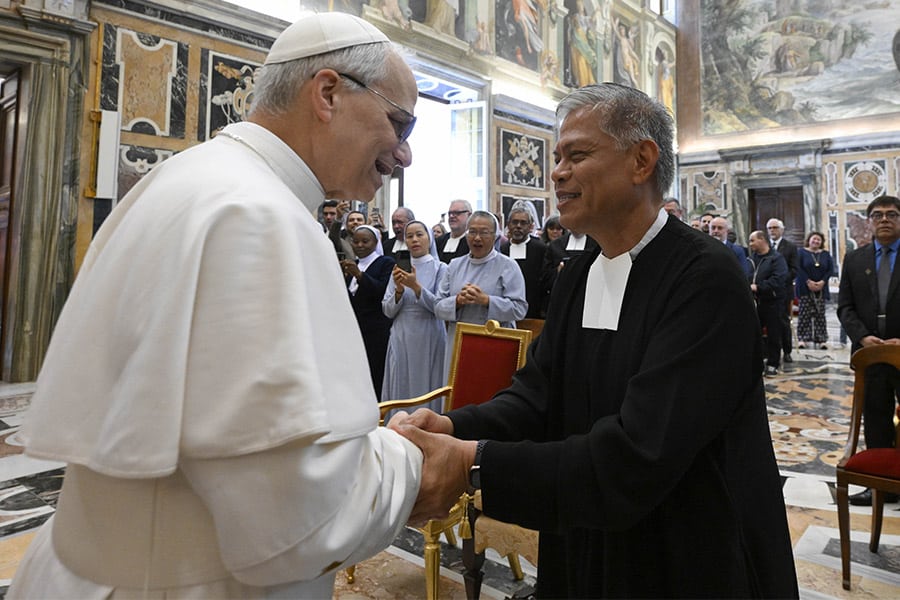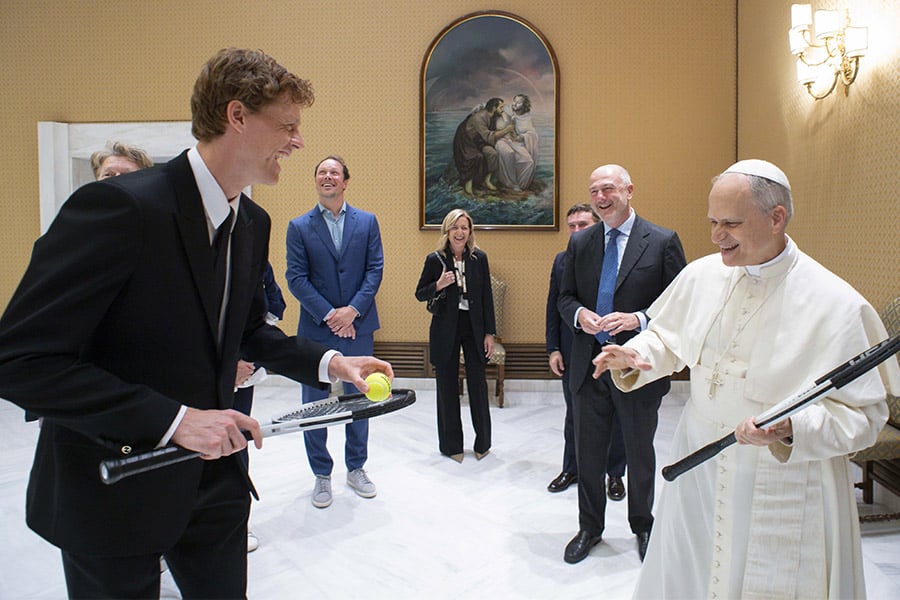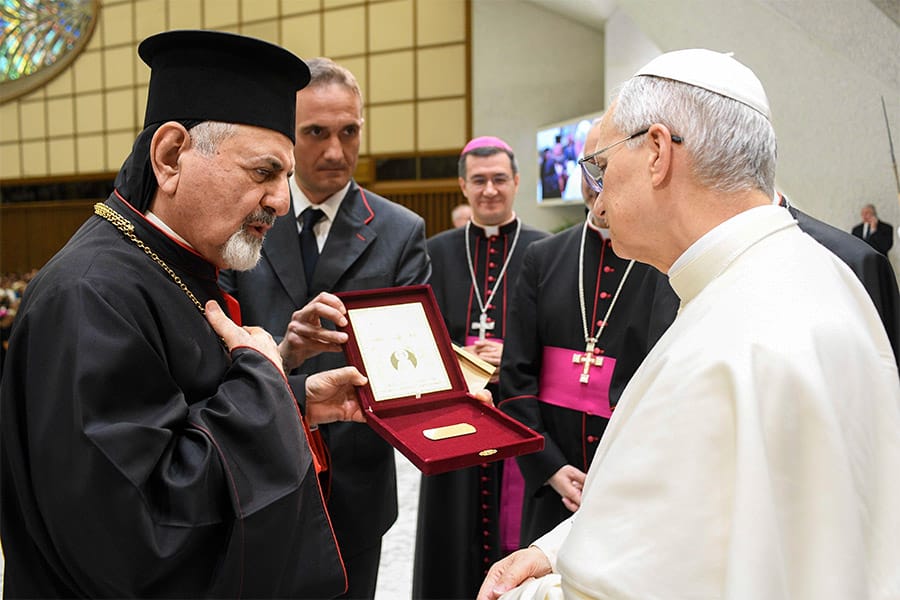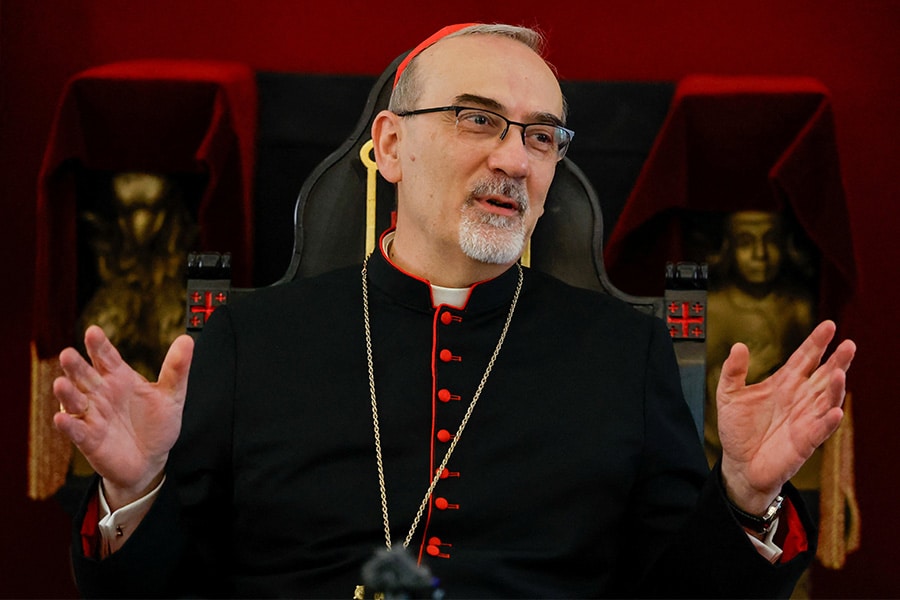ROME (CNS) — The era of divisive debate about Pope Pius XII has been left behind, and now Catholics and Jews, historians and theologians must take up serious and collaborative study, said the co-organizer of a major conference looking at the early results of new research into the wartime pontificate.
“We have come to study these documents and to think about their meaning for our lives. Not to blame, not to shame, but to study,” said Suzanne Brown-Fleming, director of international academic programs at the U.S. Holocaust Memorial Museum, opening the conference Oct. 9.
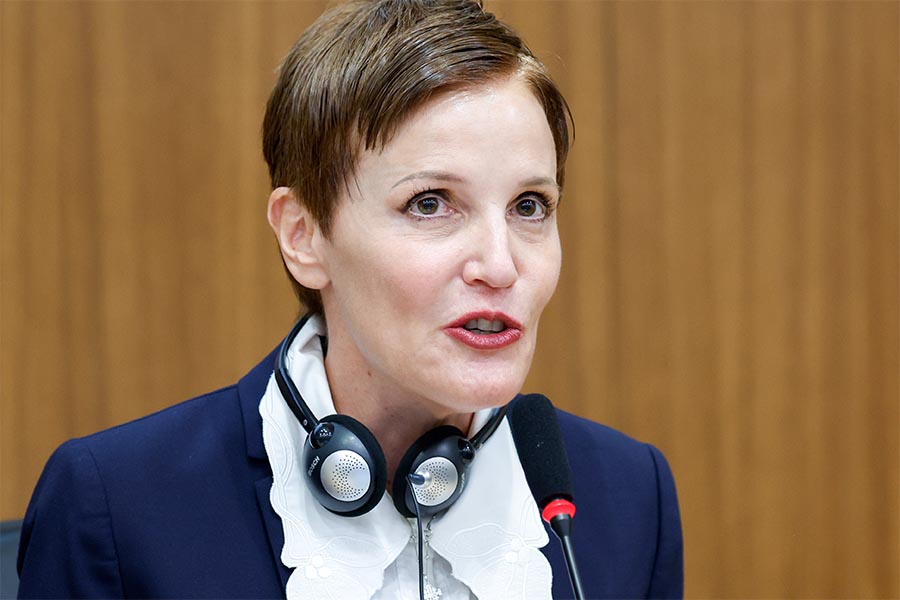
As a lifelong practicing Catholic, she said, “it’s been a dream to study these documents together with my Jewish friends and colleagues in a transparent, open way, as the Holy Father asked of us in 2019 when he announced the opening of the documents,” reminding people that “the church is not afraid of history.”
The Oct. 9-11 conference at Rome’s Pontifical Gregorian University focused on recent research into the Vatican archives of Pope Pius XII’s pontificate before, during and after World War II. The gathering was also organized by the International Institute for Holocaust Research at Yad Vashem, Jerusalem, and the Cardinal Bea Center for Judaic Studies at the Gregorian University. Speakers from Yad Vashem canceled their travel plans to Rome because of the outbreak of war with Hamas militants.
Bishop Etienne Vetö, who was director of the Cardinal Bea Center until his appointment as auxiliary bishop of Reims, France, in September, told the conference, “16 million new pages/files pertaining to one of the most somber and complex moments in human history” was made available to scholars three years ago.
“It is impossible to have a complete view of so much material in just three years, but we hope this conference can offer a first assessment,” he said in his introductory remarks Oct. 9.
Organizers invited speakers with “a wide range of perspectives and analysis on the period,” including theologians because “to understand the motivations of the various players involved one needs to grasp their worldview and the theology,” the bishop said.
“The first pressing questions will be historical,” he said, but much needs to be understood regarding how Pope Pius XII, papal diplomats and local bishops understood the relationship between church and state and between ethics and politics, for example, as well as the church’s position at the time regarding the Jewish people and racial theories.
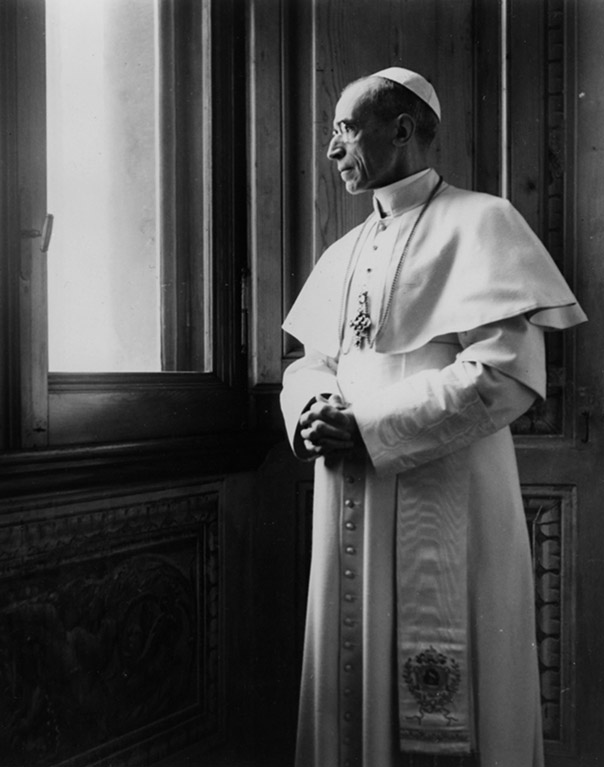
“We are ready to explore more what are the motivations, why people came to these conclusions about what they should do or say, or not do or not say,” Bishop Vetö told reporters earlier the same day at a news conference.
“For example, I was struck to see to what extent Pius XII believed that Hitler would win the war,” he said, and “that the framework for many of his decisions was that Hitler will win, so what do we do in this situation?”
Following up on the topic at the news conference, Brown-Fleming said, “It’s clear that (Pope Pius) felt very responsible for 2,000 years of Catholic history and material treasures in the city and around Italy” and “how to protect the church itself” was a major motivation if Germany had won the war and Italian dictator Benito Mussolini remained in power.
Pope Pius XII, who was pope during World War II, has been criticized for not publicly condemning the Nazi regime, its genocide of Europe’s Jews and the roundup of Jews in Rome.
Catholic officials and a variety of historians have argued that Pope Pius facilitated hiding thousands of Jews on church property and coordinated efforts to rescue and locate displaced persons in Europe during and after the war.
Cardinal Pietro Parolin, Vatican secretary of state, told the conference Oct. 9 that thanks to the recent opening of the archives, “it has become more evident that Pope Pius XII followed both the path of diplomacy and that of undercover resistance. This strategic decision wasn’t an apathetic inaction, but one that was extremely risky for everyone involved.”
“Recent discoveries in the Vatican’s and other archives have made it easier for us to understand how the historical records were manipulated in the post-war era, resulting in little or no mention of Catholics in the resistance movements,” he added.
“A considerable number of Catholics, out of religious conviction, but also out of obedience to the pope, defended the Jews with all their means, also by taking part in active resistance against Nazism and Fascism,” he said.
“It will take more than a generation of historians” to bring together the many archival sources on Pope Pius, the cardinal said, and it will be important to allow judgments to “mature with time, allowing them to move beyond the narrow world of decontextualized subjective interpretations.”
Rome’s Chief Rabbi Riccardo Di Segni also underlined the importance of staying true to the context of the time and place well before the Second Vatican Council and the “total revision of positions that sowed suffering and ordeals in history.”
“At that time there was no dialogue and the church did not love Jews,” he said.
While the church “rejected biological racism even though many believers had embraced it,” the church was nonetheless “laden with anti-Judaism deeply rooted over centuries” and, he said, “Jewish suffering was theologically justified, at least somewhat, avoiding excesses.”
With that context in mind, the rabbi said, “many things that would be inexplicable today find their framing” or explanation.
Explaining past “dynamics” and motives is one thing, Rabbi Di Segni said, and moral justification is another.
“The prohibition against killing has been carved on the tablets of the law for 34 centuries. By a tragic paradox many of those who killed the Jews” professed beliefs built on those Ten Commandments, he added.
The silence of individuals also does not escape judgment, he said. It is the judgment of ordinary people “who have been affected by events and of many others who study history and ask about moral responsibilities, which are all the greater when one carries the role of a spiritual leader.”
Regular “people of common sense” want to understand, he said, and “what we all expect” during this “moment of great historical verification is that our painful feelings and memories be respected and not offended by the judgments” of others who wish to absolve or be an apologist of the past “at all costs.”
Read More Vatican News
Copyright © 2023 Catholic News Service/U.S. Conference of Catholic Bishops

